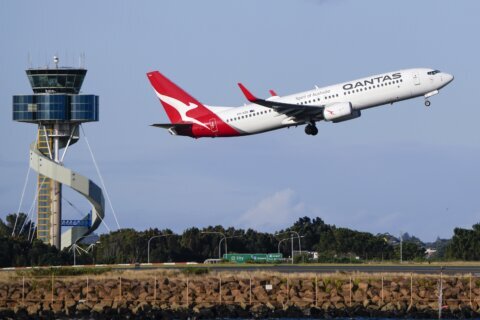MEXICO CITY (AP) — A U.N. envoy urged Ecuador’s leaders Friday to boost enforcement of labor laws and end popular fuel subsidies as part of key policy changes needed alongside their continuing efforts to combat the drug-related crime that has undermined the country’s peaceful image.
The report issued Friday by the U.N. special rapporteur on extreme poverty and human rights faulted the government for failing to crack down on slavery-like bonded labor, especially among minorities, and pointed to a lack of economic opportunity that has allowed criminal gangs to recruit members. It said money that goes to fuel subsidies should instead be spent on social programs.
“My message to the government is we need to treat insecurity as a problem of poverty and lack of economic opportunities,” Olivier De Schutter, the special rapporteur, told The Associated Press ahead of the report’s release. “The answer cannot be just law enforcement.”
De Schutter’s report stressed that about 34% of Ecuador’s people between the ages 15 and 24 live in poverty. He told the AP that many of the youth who dropped out of school during the Covid-19 pandemic never returned to classrooms and “have become easy recruits for the gangs.”
The report came nearly a month after Ecuador was rattled by the assassination in broad daylight of presidential candidate and anti-corruption crusader Fernando Villavicencio. The Aug. 9 killing laid bare the fragile state of the country’s security. Villavicencio was fatally shot despite having a security detail that included police and bodyguards.
At least two other political leaders have been killed since Villavicencio’s assassination, and last week, four car bombs and other explosive devices went off in different cities, including Quito, the capital.
Ecuadorian authorities attribute the country’s spike in violence over the past three years to a power vacuum triggered by the killing in 2020 of Jorge Zambrano, alias “Rasquiña” or “JL,” the leader of the local Los Choneros gang. Members carry out contract killings, run extortion operations, move and sell drugs, and rule prisons.
De Schutter met with President Guillermo Lasso, representatives of his administration, members of the Afro-Ecuadorian community and indigenous groups, among others.
The report is critical of what it describes as the underenforcement of labor laws, noting that the country only has 140 inspectors, according to government figures. De Schutter said that number is insufficient, and that the inspectors are “too poorly resourced” to protect people from working under forms of modern slavery.
The report said some Afro-Ecuadorian families, including children as young as 12, were doing “work remunerated significantly below the minimum wage in a form of debt bondage.”
De Schutter said that Lasso and Henry Valencia, the vice minister of labor and employment, had made a commitment to send labor inspectors to three large plantations “to basically rescue about 170 families all together” from bonded labor conditions.
Lasso’s presidency will end in December. The report urges his successor to implement a gradual fiscal reform that redirects spending destined for fuel subsidies, which last year reached $4.5 billion, to social programs that meet the needs of indigenous people and Afro-Ecuadorians.
That amount is about the same as the budget of the Education Ministry and four times the spending allocated to social assistance.
Any such change faces a steep uphill battle.
In 2019, an austerity package that cut fuel subsidies plunged Ecuador into upheaval, triggering deadly protests, looting, vandalism, clashes with security forces, the blocking of highways and the suspension of parts of its vital oil industry. The unrest led by indigenous communities forced then-President Lenin Moreno to withdraw the measure.’
A gradual phase-out of fuel subsidies, “combined with a significant increase of the levels of social assistance and investments in health and education serving the poorest communities, would be in the interest both of these communities and of the country as a whole,” the report states.
Copyright © 2024 The Associated Press. All rights reserved. This material may not be published, broadcast, written or redistributed.






